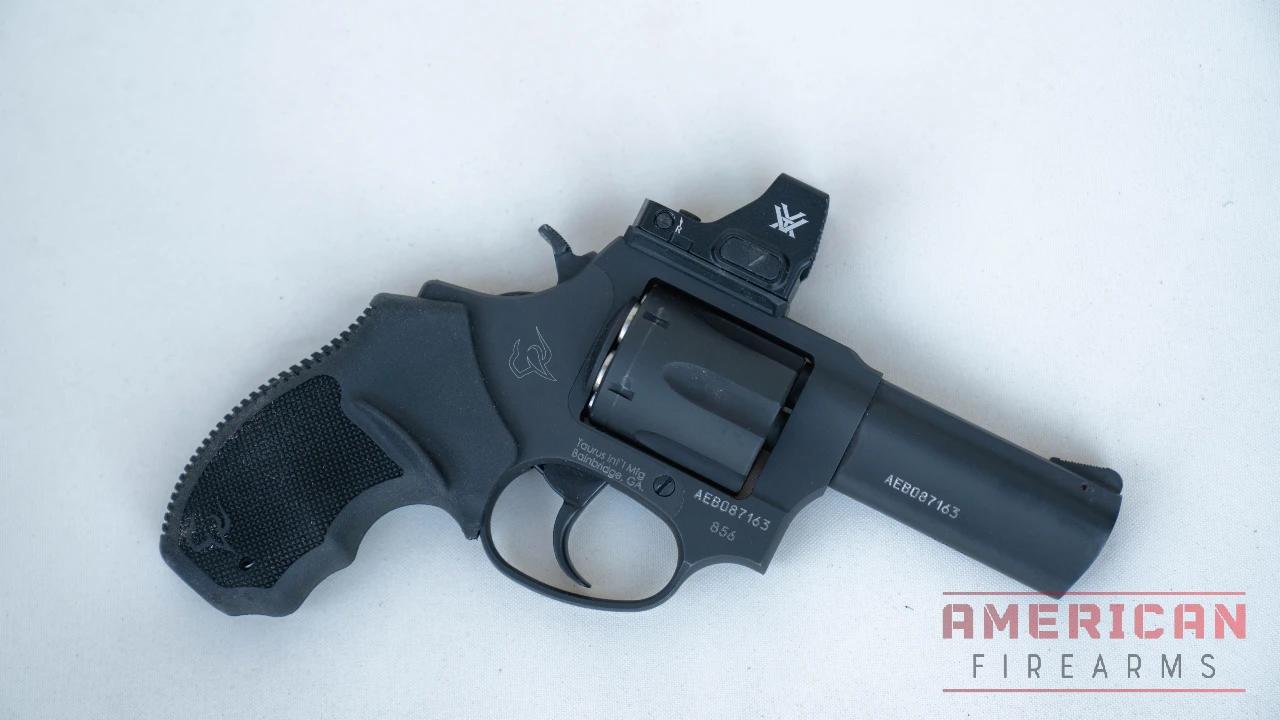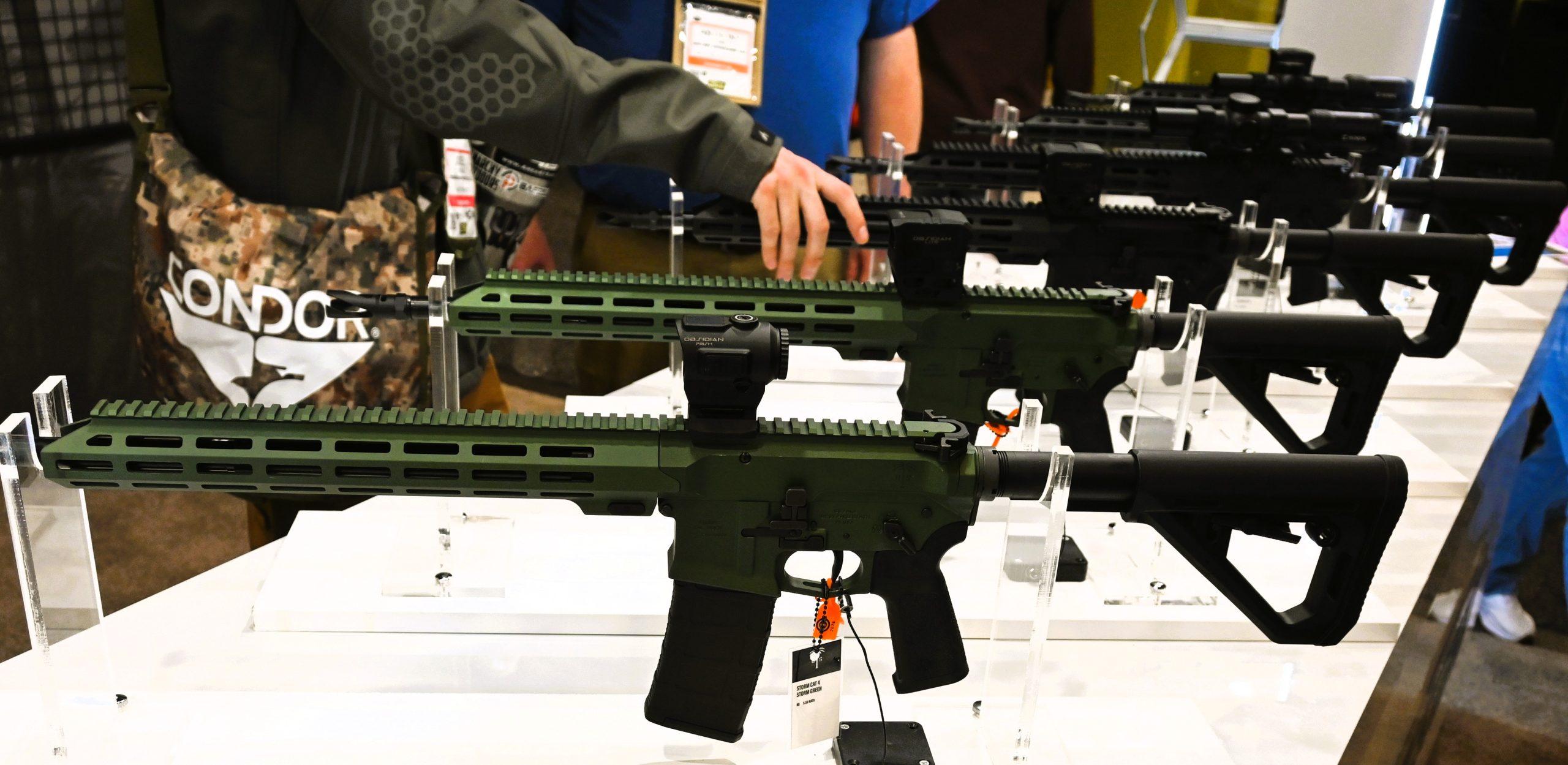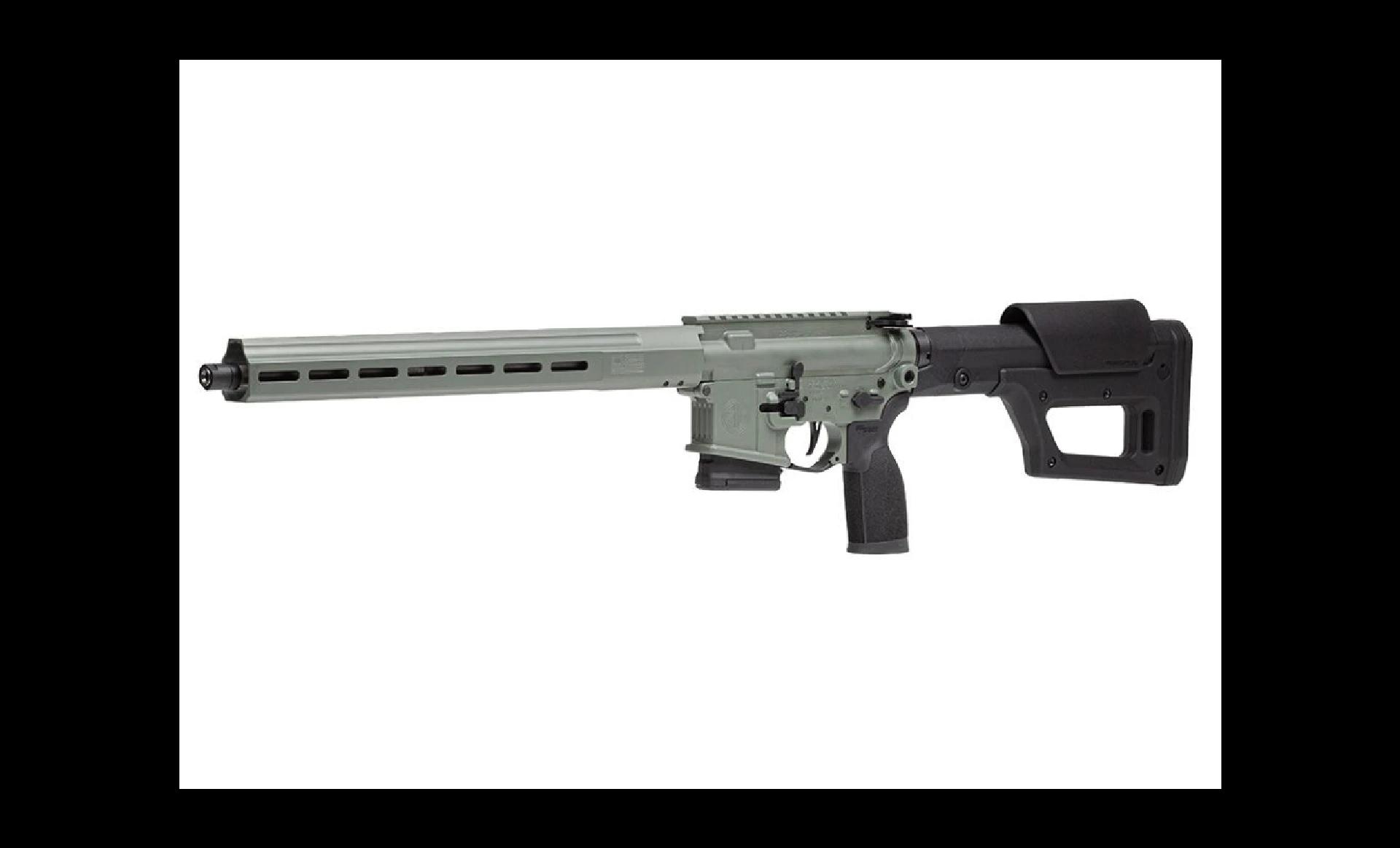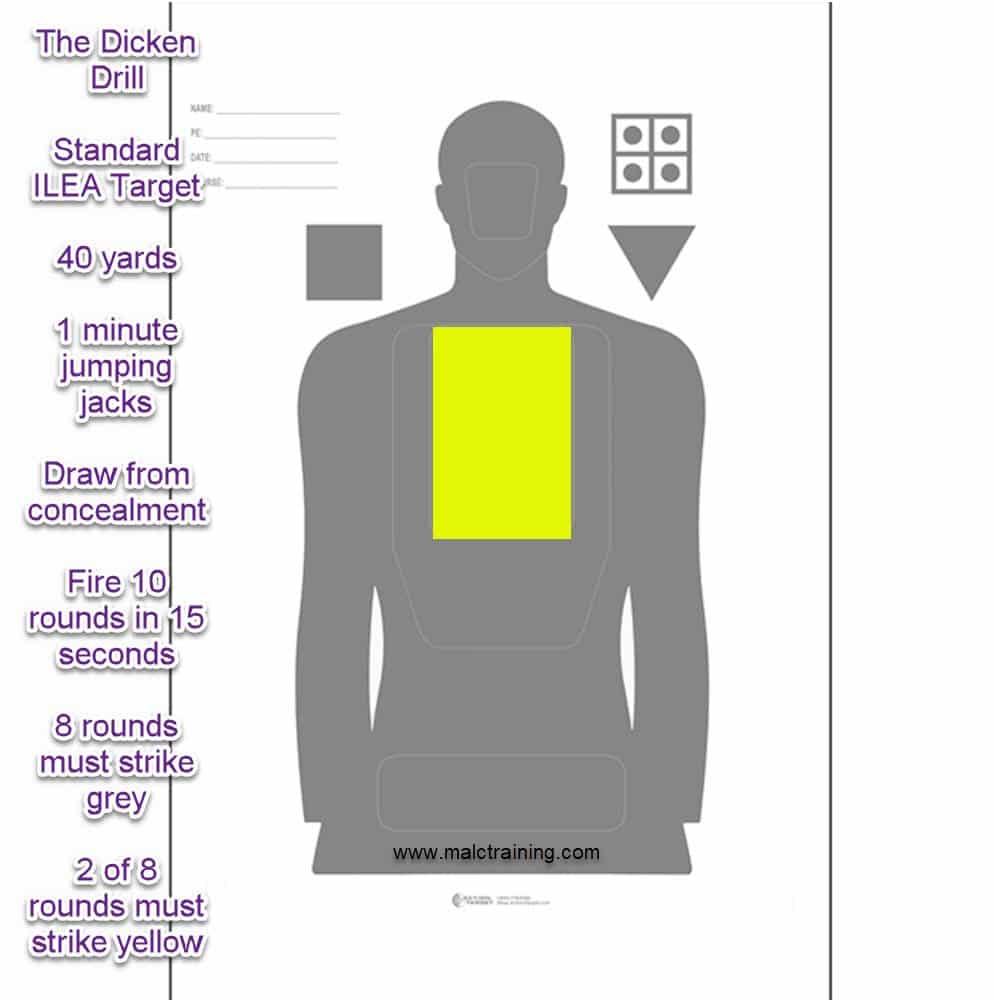Sig P365 XMACRO Review: 18 Rounds Ready
Written By
Michael Crites
Licensed Concealed Carry Holder
Reviewed by
Editorial Team
Learn About The Editorial Team
Share:
Products are selected by our editors. We may earn a commission on purchases from a link. How we select gear.

Updated
Sep 2024
The P365 XMACRO is a standout in the world of concealed carry firearms. With its impressive recoil control, high round capacity, and adaptability for a variety of shooters, it has quickly become a favorite among enthusiasts. All those attributes make the P365 XMACRO a top choice for anyone seeking a reliable and versatile concealed carry option.
The XMACRO boasts a magazine capacity that dwarfs everything else out there in its class, pairs that with a flat-faced trigger, integrated compensator, and unmatched modularity.
Sig Sauer’s new P365-XMACRO may not be a total “game changer” but is sure to reset how the game is played.
In This Article
Overview
The Sig Sauer P365 XMACRO is a compact pistol designed for concealed carry and everyday defense. With its unique blend of features and capabilities, it has quickly become a favorite among gun enthusiasts and professionals alike.
This review will delve into the intricate details of the P365 XMACRO, exploring its robust construction, stellar performance, and overall value. Whether you’re a seasoned shooter or new to the world of compact handguns, the P365 XMACRO offers a compelling option for those seeking reliability and efficiency in a concealed carry firearm.
Where'd the XMac come from?

Swiss-oriented SIG was in the large-frame pistol game going back to its first semi-auto handguns, the Neuhausen 44/16 and later P210 designs of the 1940s. When the company got into exporting guns through West Germany during the 1970s, teaming up with J.P. Sauer to form Sig-Sauer, they kept with large-frame “service” sized handguns such as the P220 and later P226. The gun was only marginally downsized into the more compact (but still hefty) P226, P228, and P229.
It wasn’t until the P239 was introduced in 1996– the company’s first American-made pistol– that Sig started moving into the sub-compact market. The little P239 was only 6.6-inches long, weighed 27 ounces, and offered either a 7+1 shot (.40 S&W) or 8+1 shot (9mm) capacity.
While the P239 was a metal-framed gun, Sig moved into an even smaller polymer-framed offering, the P290, in 2011. With the same magazine capacity and general size as the P239, it was almost a half-pound lighter, at just 20 ounces. These models were among the early sub compact pistols that Sig produced.
However, in 2018, the company moved to replace both the P239 and P290 with something that would fit in roughly the same-sized box but bring a double-(ish)-stack 10-round, 12-round, or 15-round magazine capacity along for the ride– the P365.

Named as a sort of salute to being an “every day, 365” carry pistol, the striker-fired P365 had a better trigger than the P290, albeit one that was not capable of a restrike capacity.
It also borrowed from other Sig designs, using the same style barrel lockup method utilized by the P210 (if it isn’t broken…) and a modular fire control unit, or FCU, that the company had introduced with the P250 back in 2007 and carried forward with the more successful P320.
The P365’s FCU, which is machined from S7 tool steel, is the serialized “heart” of the pistol and can be swapped around different grip modules in the family. Speaking of which, the P365 has evolved from the standard model to the larger and 0.79-inch longer P365XL, then slightly the taller P365X, the latter of which accepts a flush-fit 12-round magazine.
When compared to the rest of the P365 family, the Sig P365-XMACRO is the same length as the P365XL and P365 Spectre Comp (6.6 inches, the same length as the old school P239 of 1996) but stands 5.2 inches tall from the top of the slide to the bottom of magazine baseplate, or about 0.55 inches higher than the P365XL/SC.
That extra size packs in extra capacity, getting the user a 17+1 flush fitting magazine, a full-sized M1913 Picatinny accessory rail, and a compensated slide without going any longer (it uses the abbreviated P365X barrel inside the P365XL-length ported slide).
The P365-XMACRO grip modules also can use interchangeable palm swell backstraps, another first for the family.
Those with a P365XL or P365 Spectre Comp can get a P365-XMACRO grip module for $79 from Sig– no FFL required– and use the standard 17+1 round mags that flush fit with that latter pistol. Those with any P365 can use the 17+1 round XMacro mags without modifications, they just have to use them with grip extenders.

$836.99

31
AVERAGE
Performance Scores
More Capacity for Concealed Carry
The P365-XMACRO, as Sig says, “means more” as in it brings the largest flush-fitting magazine in terms of capacity to the series, allowing this compact handgun an amazing 17+1 rounds on tap, or the same as a full-sized Glock 17 while being more concealable.
Plus, it is more capable than other members of its family tree because it has a full-sized M1913 accessory rail. This means you can run just about any weapon-mounted lights you desire. This makes the XMacro a more functional pistol than its smaller brothers, and you could easily use one for home defense– outfitted with a WML and 18 rounds ready.

Further, it is unique when it comes to the P365 series, as the frame uses interchangeable backstraps. This means it can fit more hands and be carried by more folks. Additionally, the modularity makes it a better choice for law enforcement agencies seeking to outfit a diverse group of plainclothes personnel, such as detectives and inspectors who don’t require a “service” pistol.
Specifications
Caliber: | 9x19mm Parabellum |
Capacity: | 17+1 rounds (2 Magazines Included) |
Action: | Striker-fired |
Trigger Pull Weight: | 5-6 lbs |
Length: | 6.6 in |
Height: | 5.2 in |
Width: | 1.1 in |
Barrel Length: | 3.1 in |
Weight: | 21.5 oz. (with empty magazine) |
Sights: | X-RAY3 Day/Night sights / RMSc optics cut |
Rifling: | 6-groove / 1-in-10 inch twist |
Finish: | Black Nitron-finished stainless steel |
Features
Build Quality
During my time with the pistol, I found the P365-XMACRO well-made and durable. While lots of polymer-framed handguns on the market have a ton of “flex” when fired because they are made from cheapy materials and have a sloppy fitment, the XMACRO genuinely felt good in the hand while firing, thanks to its larger grip frame that accommodates different hand sizes and improves control.
The internal FCU is high quality and, for a MIM part, is hard to knock as it is milled out from S7 tool steel.

Controls
The surface controls on the P365-XMACRO are located on the left side of the grip module, ideally for use by right-handed users. These include a rotating takedown lever, a slide catch lever, and a magazine catch.
I found them to work as advertised, although the takedown lever is tough to get started when you go to field strip the pistol, and those who love to close a slide via the slide catch (rather than slingshot it with the off hand) are going to find that lever a bit smallish. It would be nice to have ambi controls, but Sig points out that the current setup keeps the overall width in the 1-inch range, which I can’t argue against.

The most-used control, the mag catch, is very tactile and easy to use without being in the way of a two-handed grip.
There is also an optional P365 FCU made with a manual safety lever for folks who just want such a thing or in restricted states, such as Massachusetts, who require it. However, I don’t see where Sig is currently making a P365-XMACRO variant with a manual safety, so if that is a thing you hunger for, you may have to contact them directly or buy an XMac, buy a manual safety P365 FCU, and get to swapping and tweaking.
Impressive, But Expensive, Magazines
The great thing about the P365-XMACRO when it comes to magazines is that it uses an impressive steel-bodied mag with a 17-shot capacity while keeping an overall length of just 4.5 inches. It is the same length as the P365XL’s 15-shot mag but uses a stronger and more compact spring and a redesigned follower to pack in two extra rounds of 9mm ammo.

Throughout 1,000 rounds, I had no problems with the magazines other than the fact that the springs are very tough indeed when it comes to loading the 16th and 17th rounds. Luckily, Sig sends a simple-to-use magazine loading tool along with the pistol.
The only other complaint I have regarding the P365-XMACRO’s mags is that they are pricey, running $59 for extra mags from Sig. This is compounded by the fact that, due to the newness of the design, Sig is the sole source for these as no one is making an aftermarket alternative. Sure, the pistol ships with two mags, but in my opinion, you want to have at least four for any handgun you own to have enough to rotate through training, downtime, and carry.
That means a couple of extra OEM factory mags, as needed by that rule of thumb, is going to set a new owner back $120 bucks plus shipping.
Slide & Sights
While the P365-XMACRO is 6.6 inches long in overall length, it only sports a 3.1-inch barrel because the first half-inch of the slide is taken up by the integral compensated slide slots.
The shorter barrel length may reduce precision compared to larger models, but the integrated compensator reduces muzzle flip to help control recoil, leading to faster follow-up shots — and in my testing, it works a treat.

This cuts the sight radius down a little bit too roughly the same– still very functional– length as that seen on the standard P365 and P365X. The slide uses rear-angled cocking serrations at both rear and forward positions on the slide that are a bit shallow but still work.

When it comes to sights, the P365-XMACRO comes standard with Sig’s excellent steel X-RAY3 day/night sights, a standard 3-dot Tritium system with a white outline that offers glowing illumination in low-light while not being washed out in bright daylight. They are rated for over 20,000 rounds, and the vials have a 12-year half-life, meaning they will still be glowing even after you celebrate another 10 trips around the sun.
Sig normally runs them on top-shelf models such as Custom Shop and Legion series guns, so having them standard on the XMac is about as good as it gets for Sig.

Going past the sights, the slide on the XMacro is fitted with a factory CNC optics cut in a common footprint that accommodates Sig’s 1x24mm Romeo Zero series optics, a Holosun 407k/507k. or anything that fits a Shield RMSc pattern MRD.
I installed a Romeo Zero Elite, which has a co-witnessing rear sight insert that matches the X-RAY 3’s pattern and had no issue with the mounting or the optic itself.

Grip Texture & Ergonomics
The P365-XMACRO uses a different, longer grip module than the rest of the P365 family. While similar, the macro compact grip module uses an updated 360-degree texture which is undercut on the grip to allow a high purchase under the trigger guard. Close to what Sig uses on the new P322 rimfire pistol– it could be argued that the .22LR is a perfect training companion for XMACRO owners– it is slim and lends to great control.

In short, you can run the XMac faster than you can other P365s due to the integrated compensator, which helps the pistol recover faster, and the orientation of the grip module. The layout is logical, and you get the feeling Sig did a lot of touchpoint research regarding the pistol’s development.
Moreover, the SIG P365-XMACRO ships with three interchangeable back straps (Small, Medium, and Large backstraps, naturally), which the palm swell uses to adjust the grip smaller or larger for the user’s preference.

While the pistol ships with the medium insert installed, I tested out the inserts and found them easy to swap around, although, in the end, I just stuck with the standard medium panel as that’s what I had used the gun the most with, even though, admittedly, the larger swell felt a little better.
I advise you to give each one a shot early on so you can go with what feels better right off the bat.
Trigger & Reset

The flat-faced trigger on the P365-XMACRO is similar to that found on the P365XL and breaks roughly vertically to the frame after a short take-up. The reset is brief and is both audible and tactile. Fresh from the box, I found it to break at just under 6 pounds with a digital trigger gauge set to about the middle of the pad.
After running 1,000 rounds, trigger pull broke closer to 5 pounds, feeling slightly crisper after the evaluation and testing period ended.
In stacking Sig’s flat trigger against other striker-operated factory triggers in polymer-framed pistols, it falls toward the top of the list.
One note of warning I have noticed on all P365 models over the past couple of years is that, due to the nature of the fire control unit design, the trigger pack starts to feel hot to the touch in extended range sessions once you run a couple of hundred rounds in a brief period.
While you probably could use a P365 in exhibition shooting or a high-round training course, be aware that you also would likely want to do it with a set of shooting gloves. However, for normal range trips where a user might run 100-150 rounds in an hour, it shouldn’t be a problem.
Range Report

With a good trigger, great sights, and excellent ergonomics, the P365XL is downright fun on the range. With the Romeo Zero red dot attached, I was pinging a torso plate at 50 yards more often than not– which is some seriously decent performance out of a pistol with a 3.1-inch barrel (Muzzle flip was AWOL.) However, the battery life of the ROMEOZero Elite red dot sight may be a bit of a concern.
Cue the Dicken Drill with this one.
Sans the red dot, out to 25 yards it was exceptionally accurate for its class. In firing from the bench at 15 yards, I was able to consistently keep three round groups inside the same one-inch block (see picture) on a sighting target, making for an incredibly capable carry gun.
While some of the original runs of P365s back around the 2018 period suffered from well-publicized issues like primer drag and slide catching, Sig seems to have worked the bugs out, and I can report that reliability is a real thing on the XMacro of 2022. Running just over 1,000 rounds of factory 9mm ammo through the pistol, stopping halfway between to clean and lube following Sig’s published recommendations, it gave not a single gripe.
The ammo draw ran from some old 95-grain Magtech to 147-grain Federals with JSPs, FMJs, JHPs, and the like, including steel-cased imported rounds from Eastern Europe and an MC Hammer-era box of aluminum-cased CCI Blazer. It. All. Ran. The worst problem I ran into when it came to reliability is the failure to easily seat a fully loaded 17-round mag on a closed slide.
You want to make sure you push-pull in that situation to ensure it is properly seated.
Carry Gun Performance
The P365 X-MACRO is engineered to deliver exceptional performance within a compact frame. Boasting a 17-round magazine capacity and a 3.1-inch barrel length, it stands out as an ideal choice for concealed carry and self-defense.
One of its standout features is the dual-port compensator, which significantly reduces felt recoil. This design allows for quicker follow-up shots and improved accuracy, making it a reliable companion in high-stress situations.
Additionally, the P365 X-Macro features a straight trigger with a clean break at approximately 5.6 pounds, ensuring ease of use and precise control. These attributes collectively make the P365 X-Macro a formidable contender in the realm of carry guns.
Concealed Carry and EDC
Designed with concealed carry and everyday defense in mind, the P365 X-Macro excels in both form and function. Its compact size and lightweight design make it an effortless addition to your daily routine, while the 17-round magazine capacity ensures you have ample firepower at your disposal.
Whether you’re navigating urban environments or seeking a reliable self-defense option, the P365 X-Macro is built to meet your needs with confidence and ease.
Everyday Carry Considerations
When it comes to everyday carry, the P365 X-Macro stands out as a top contender. Its compact size and lightweight design make it easy to carry, while the 17-round magazine capacity provides ample firepower for self-defense situations. The dual-port compensator plays a crucial role in reducing felt recoil, making the pistol easier to control and use effectively in high-stress scenarios.
In terms of customization, the P365 X-Macro is compatible with a variety of lights and lasers, allowing you to tailor it to your specific needs. The inclusion of a mag loader simplifies the process of loading and unloading the magazine, enhancing overall convenience. Additionally, the thumb safety offers an extra layer of security and control, which can be particularly reassuring in critical moments.
Overall, the Sig Sauer P365 X-Macro is an excellent choice for concealed carry and everyday defense. Its unique features, compact size, and exceptional performance make it a standout option in the world of compact pistols. Whether you’re looking for reliability, ease of use, or advanced features, the P365 X-Macro delivers on all fronts, making it a worthy addition to any firearm collection.
Takedown & Maintenance
The P365 series takes down for basic cleaning and inspection super easily. With a clear and unloaded pistol, with no magazine inserted or brass in the chamber, lock the slide to the rear by pulling it back and pushing up the slide catch lever.
Then, rotate the takedown lever on the left side of the frame down until it stops at roughly a 270-degree angle to the bore.

Next, pull the slide rearward to disengage the slide catch lever, then pull the slide gently forward and up to clear the frame. Then, you can remove the barrel and spring guide assembly from the slide. That’s about as far as you want to go unless you are moving the FCU to a different grip module.
When it comes to a maintenance schedule, Sig recommends users of their P365 platform clean and lubricate before or after every day the pistol is fired or at a minimum of every 500 rounds, whichever comes first.
While the original P365 has a recoil spring guide assembly that should be changed after every 2,500 rounds out of an abundance of caution (it can probably go more like 5K rounds), Sig says the XL and XMacro use a stronger assembly that is good for 10K rounds.
Otherwise, no user-serviceable wear parts need replacing any sooner than 10,000 rounds, at which point most of the other springs should probably be checked out, especially if there are jams or a drop in performance. Sig sells a $99 corrosion-resistant slide completion kit that includes most of the high-wear parts that you would want to refresh a high-mileage P365 with, although they caution that they should be installed by somebody who knows what they are doing.
Remember, Sig has a limited lifetime warranty (for the original purchaser’s lifetime) if you get into anything weird.
Every rose…
Of course, every rose has its thorns, as they say, and the P365-XMACRO is good, even great when compared to older carry guns, but it is not quite perfect. The mags are expensive at $59 apiece and are unique to the model. While they are backward compatible with all other P365s, the P365-XMACRO can only use its mags, kind of like a universal blood type donor.
Another thorn is the fact that the P365 was meant from the outset to be as small as possible while still bringing 10 or more rounds to the party. In the half-decade since it was introduced, Sig seems to be determined to make the platform consistently bigger, first with the P365X, then the P365XL, and now with the XMacro.
It has gotten to where it is almost the size of a Glock 19— a pistol that was long considered the “gold standard” for carry purposes in balancing length, weight, and capacity. Sure, the XMac is still a bit more svelte than the G19, has an integrated compensator that doesn’t add to the overall length, and carries a few extra rounds, but it is still sort of the “biggest little gun” out there.
If not the XMac, what?
Sig contends the P365-XMACRO “is more concealable and more comfortable to carry than any other 17-round gun on the market,” and it is hard to fight them on that statement. In the ever-growing micro compact 9 category, if one is looking for a more affordable option and is willing to trade dollars for a gun with fewer features (no compensator, worse trigger, slightly smaller magazine capacity) you can get a Ruger Max-9, Kimber R7 Mako, Taurus GX4, Springfield Armory Hellcat Pro, or Smith & Wesson M&P Shield Plus for a couple hundo less.
Likewise, the cost of the original P365 and its P365X and XL follow-ons is $200-$300 or so less expensive than the XMacro, especially if the buyer comes across a gently used model. On the other hand, the only better micro 9 pistols on the market in terms of features and performance is another Sig– the P365XL Spectre Comp– which can cost a good deal more.
Final Verdict
The Sig Sauer P365-XMACRO kind of came out of the blue when talking about carry guns and does many things better than the competition. Likewise, in terms of magazine capacity versus size, it stands apart from everything else that is out there.
More capacity, coupled with the innovative new compensated slide format that helps mitigate recoil without adding to the pistol’s overall length or adding a muzzle device that can become a failure point, further ups the ante.
I’ll bet you dollars to donuts local gun stores and pawn shops will soon be crowded with secondhand Glock 19s and 43Xs, while the waiting list for XMacros holds steady.
Updated
September 22, 2024 — We added more detail about our experience with the XMACRO, including a longer-term take on reliability & its fit as a carry piece.
Sign up for our newsletter
Get discounts from top brands and our latest reviews!




























